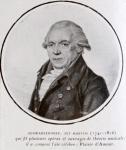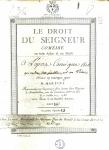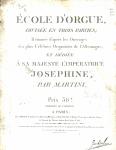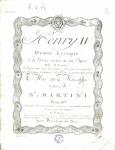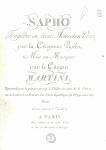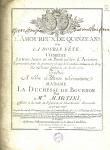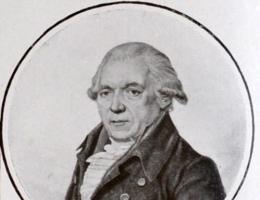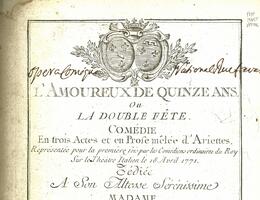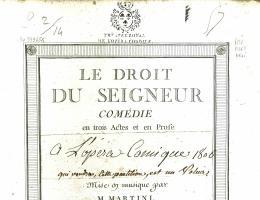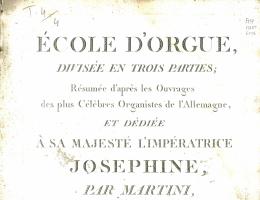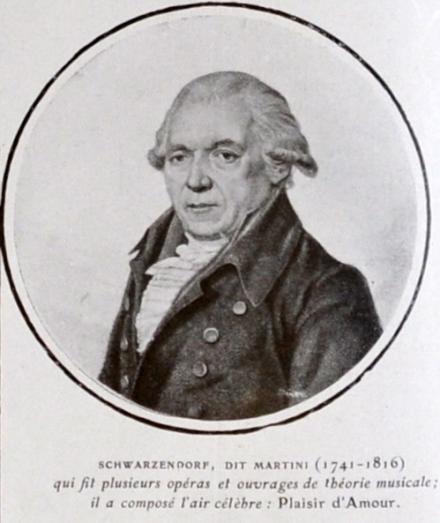
Johann Paul Aegidius MARTINI
1741 - 1816
Composer, Organist
Son of organist, Andreas Martin Schwarzendorf, Johann Paul Aegidius Martini was born on 31 August 1741 in Freystadt, Bavaria. He was initially trained on the organ by his father, then continued his musical education at the Jesuit seminary in Neuburg. In 1758, he began studying philosophy at the University of Fribourg, where he became organist at the Franciscan convent. Two years later, after a quarrel with his father, he moved to Nancy. His compositions brought him to the attention of two influential patrons, one of whom being the exiled King of Poland, Stanislas I. In 1765, Martini moved to Paris where he made a name for himself in aristocratic and royal circles and began a brilliant official career. After winning a competition for the composition of marches, Martini entered employment with the Marquis of Chamborant, then the Duc de Condé, and the Comte d’Artois. In 1787, he took over the Queen’s concerts, before becoming director of the Théâtre de Monsieur (later the Théâtre Feydeau). Risking arrest because of his close ties to the royal family, Martini fled to Lyons during the Terror. When he returned, his opera Sapho was a triumphant success in Paris. This resulted in his appointment to the post of Inspecteur of the Paris Conservatoire in 1796—a job which he held until 1800, when he became Professor of Composition. In 1802, he was nonetheless ousted from that institution by Catel and Méhul. A cool reception from the opera houses led the composer to turn to church music: his Te Deum and Messe Solennelle were used to accompany public prayers. After the French Restoration, he was finally given the position of Superintendent of the King’s Music in 1788. He died in 1816. Martini’s career followed a path typical of many musicians of that period: highly ambitious yet without strong political affiliation, he safely weathered the changing regimes during that troubled period. Although not French by birth, the fact that he moved in Parisian circles and had strong ties to various academic institutions made him a perfect representative of those foreigners who “adapted” themselves to the French style like Cambini, Cherubini, Spontini, Reicha and many others.
Works
Messe des morts à grand orchestre dédiée aux mânes des compositeurs les plus célèbres
Johann Paul Aegidius MARTINI
1815
Permalink
publication date : 30/09/23

